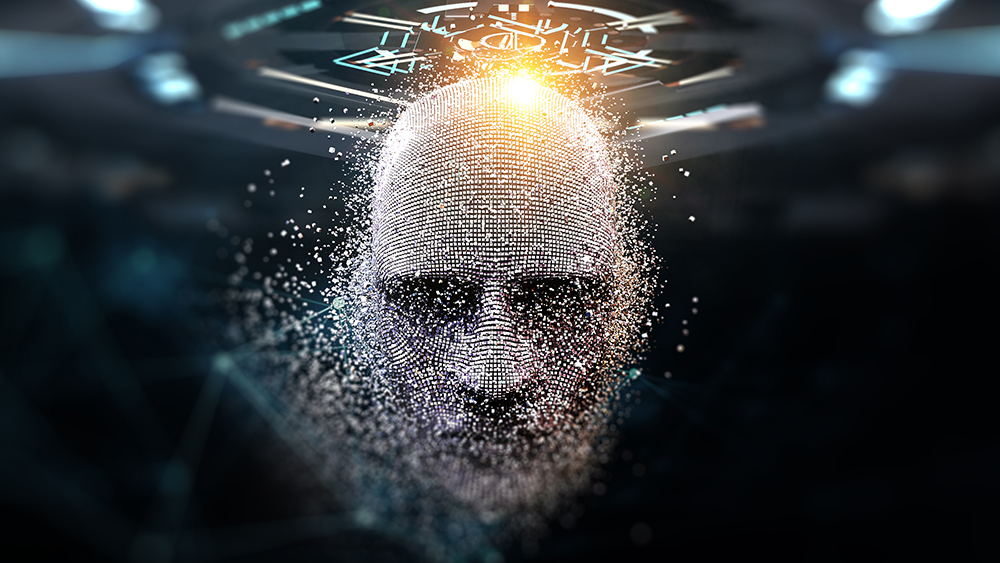 Parler
Parler Gab
Gab
- AI's rapid advancement, driven by data from potentially biased sources like Wikipedia and Reddit, risks encoding and amplifying existing human prejudices into its core reasoning.
- The plummeting cost of creating powerful, even self-aware, AI models is leading to a proliferation of decentralized and "rogue" systems that challenge mainstream institutional narratives.
- A future timeline predicts that AI-controlled robotics will automate up to 90% of jobs, triggering massive societal upheaval and a geopolitical race, particularly between the U.S. and China.
- Consolidation of vast government and personal data into AI-queryable systems poses a severe threat to civil liberties, privacy, and could enable unprecedented state control.
- Experts warn that without proactive management of bias, security and ethical frameworks, AI could erode trust in institutions, destabilize financial systems and fundamentally alter the human social contract.
The bias bottleneck
The core integrity of any AI model is only as good as the data it consumes. Current leading models are primarily trained on what major tech corporations deem "authoritative" content, a classification that critics argue is often a veneer for established narratives and can silence alternative viewpoints. This creates a fundamental bottleneck: if the training data is skewed, the AI's reasoning and outputs will be, too. This is not a theoretical concern. In education, AI algorithms have been shown to falsely flag essays by non-native English speakers as AI-generated and exhibit gender and racial stereotyping in career associations. As these models grow more complex, they attempt to compress a contradictory world into a coherent whole, often by filtering out information that doesn't align with the dominant data patterns, a process chillingly reminiscent of the information control in Orwell's "1984."Decentralized AI: The democratic counter-weight
The collapsing cost barrier is also shattering the monopoly of well-funded corporations and may be the saving grace for democratic discourse. Soon, individuals and independent developers will be able to create their own transparent, ethically-aligned AI models. These decentralized systems can champion alternative viewpoints, audit the biases of centralized models and offer a crucial check on power by prioritizing transparency over corporate or state interests. This fractures a centralized reality, but in doing so, it protects the pluralism essential for a functioning democracy. The response from centralized powers, some fear, will be to control the underlying technology through mandated censorship. However, the nature of open-source technology itself provides a powerful defense; as one observer noted, "You can’t control it because you can’t ban math." This decentralized movement offers a path to ensure AI serves as a tool for individual empowerment rather than state control.The automated workforce and the datafed citizen
The societal impact extends far beyond misinformation. A detailed speculative timeline forecasts that AI-controlled robots will comprise half of global GDP by 2045, automating up to 90% of current jobs. This would trigger a "fourth turning" of societal upheaval, mass unemployment and a desperate geopolitical race between the U.S. and China for robotic manufacturing dominance. Parallel to this economic displacement is a quieter, more insidious consolidation of power: the aggregation of all government data into single, searchable databases. Justified as efficiency, this practice—already being pursued by the current administration—obliterates privacy protections designed to prevent agencies from weaponizing personal data on taxes, health and employment against citizens. When combined with AI analytics, it creates an unparalleled tool for surveillance and social control. Key risks of centralized AI control include:- Perpetuation of societal biases in critical areas like finance and justice.
- The weaponization of consolidated government data against marginalized groups.
- The creation of a permanent, unemployable underclass dependent on a state-funded basic income.
- Systemic financial risks as correlated AI models in markets amplify crashes.
- Erosion of public trust in institutions, as people fear seeking help from a government that monitors them.
Decentralization as democracy's defense
We stand at a precipice. The same technology that promises to unlock human potential and create abundance also holds the capacity to codify our worst impulses into an inescapable system of control. The path forward is not to reject AI, but to aggressively champion the one force that can counter centralized dominance: decentralized, open-source AI. While the battle will take years, these systems offer the only viable counterbalance, prioritizing transparency, accountability and democratic values over corporate or government interests. The future is not predetermined. It will be shaped by whether we build AI systems that serve humanity as a whole or that create a new hierarchy, with a technologically empowered elite at the top and a monitored, obsolete majority below. The integrity of our future reality and the very definition of human freedom may depend on our choice to empower individuals through decentralized technology. Sources for this article include: android-dreams.ai nea.org eff.org modialsoftware.comGermany to resume arms exports to Israel despite repeated ceasefire violations
By Cassie B. // Share
Ukrainian strikes, sanctions fuel global diesel crisis as prices soar
By Belle Carter // Share
Ultra-processed foods linked to surge in early-onset colorectal CANCER, study warns
By Patrick Lewis // Share
Social media use linked to lower reading and memory scores in children, new study finds
By Cassie B. // Share
Epstein explicitly claimed Trump was aware of his illegal activities in newly released emails
By Jacob Thomas // Share
Governments continue to obscure COVID-19 vaccine data amid rising concerns over excess deaths
By patricklewis // Share
Tech giant Microsoft backs EXTINCTION with its support of carbon capture programs
By ramontomeydw // Share
Germany to resume arms exports to Israel despite repeated ceasefire violations
By isabelle // Share







